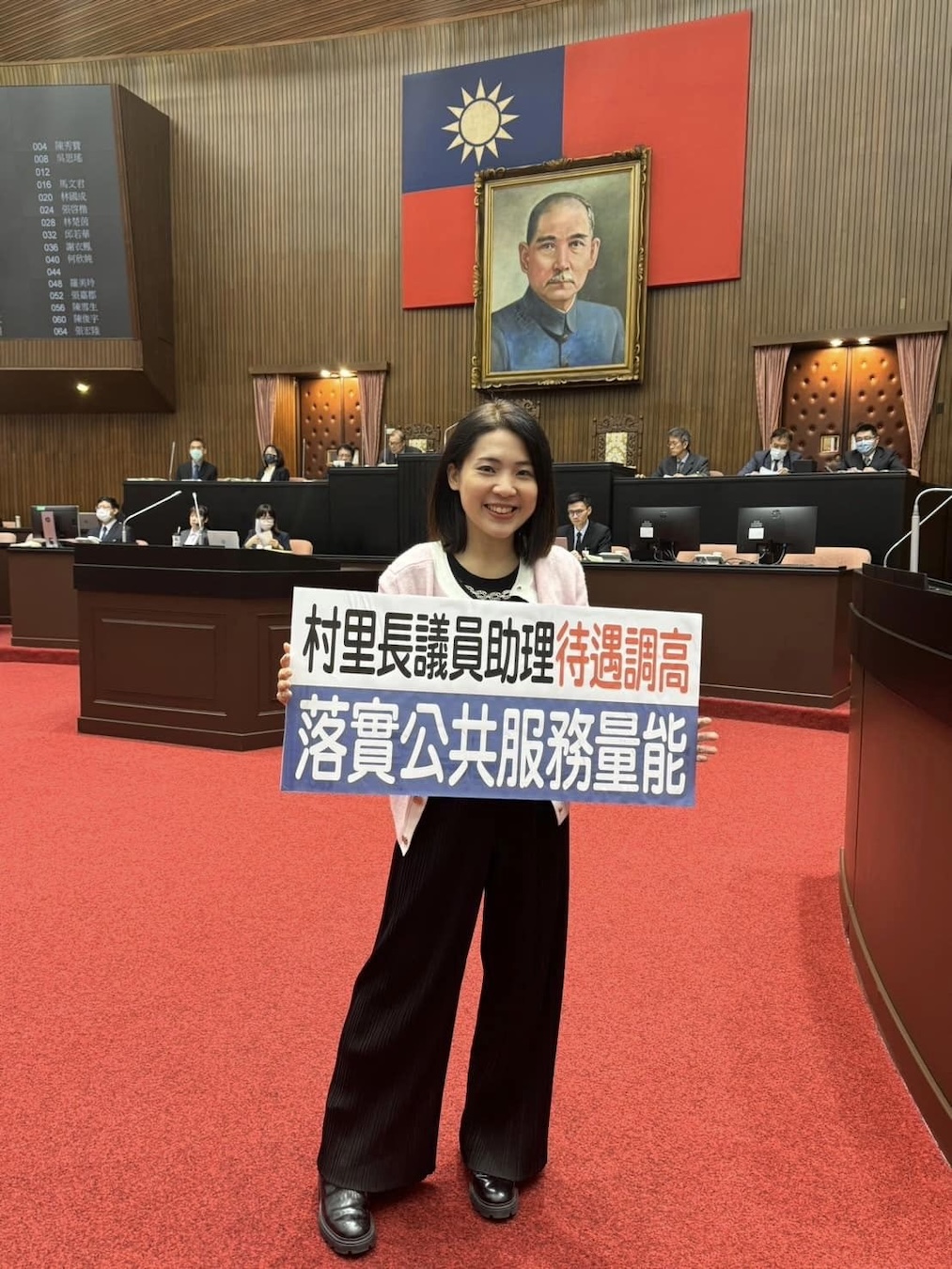by Brian Hioe
語言:
English
Photo Credit: Hsu Chiao-hsin/Facebook
KMT LEGISLATOR HSU CHIAO-HSIN has recently become embroiled in a series of scandals. This perhaps proves instructive as to the current political trajectory of the KMT.
Hsu is one of the young rising stars of the KMT, as one of the better-known young politicians of the party. Hsu is specifically known as a political firebrand, due to frequently becoming embroiled in controversy.
At present, Hsu is under fire on a number of fronts. Hsu has been accused of potentially being implicated in corruption allegations against Taipei mayor Ko Wen-je over the unusual increase in the floor area ratio of the Core Pacific City mall that took place during his mayoral administration.
Namely, Hsu and her husband, Liu Yen-li, purchased property near the Core Pacific Mall in 2021 near the mall, raising questions as to whether she purchased this on the basis of insider information about the development plans for the site. While Hsu purchased the property at a cost of 18 million NT, in the future, the property could be sold for 60 million NT.
The scandal occurred after Hsu’s sister-in-law, Liu Hsiang-hsieh, and her husband, Tu Ping-cheng, were accused of money laundering as part of an investigation into a scam ring. Hsu has denied any connection to wrongdoing by Liu and Tu. Yet this has not prevented the DPP from pointing to oddities in a sudden increase in Hsu’s income, in that Hsu and Liu reported 4.58 million NT in assets at the end of 2022, but this had suddenly increased to 8.75 million NT by the end of 2023, with an increase in 4.15 million NT from bank deposits.
This is not the first time that Hsu has been accused of abusing her power. In 2022, Hsu was accused of pressuring a police officer over a parking ticket, later threatening to sue over reports about the purported incident.
 Hsu Chiao-hsin. Photo credit: Hsu Chiao-hsin/Facebook
Hsu Chiao-hsin. Photo credit: Hsu Chiao-hsin/Facebook
Ironically, in the same timeframe, Hsu has hit out at what she claims to be political corruption in Taiwan’s diplomatic relations. Hsu has accused Taiwanese aid to Ukraine in collaboration with Czechia and Ukraine of being a form of political kickback, continuing the pattern in which the KMT aims to try and undercut the Tsai administration’s successes in strengthening political ties with other countries by suggesting that this has only occurred through political corruption, with the Tsai administration paying off foreign politicians.
To make such allegations, Hsu disclosed confidential documents. As such, the Ministry of Foreign Affairs has stated that it will take legal action against Hsu. Though Hsu denies that the documents were confidential, this is not the only time that KMT politicians in recent memory have been accused of leaking government materials, as with Legislative Yuan defense committee co-chair Ma Wen-chun of the KMT facing allegations of leaking documents from Taiwan’s domestic submarine program to China and South Korea.
Hsu is one of the KMT politicians who has sought to sow doubt about potential allies of Taiwan in wartime. For example, Hsu previously alleged that the veterans’ assistance organization Spirit of America was an organization that sowed warfare wherever it went, drawing on conspiratorial claims from US fringe influencers amplified by the pan-Blue camp that the Biden administration has a secret plan to destroy Taiwan.
This proves an unusual turn for Hsu, however. In particular, Hsu first made her political debut in 2016 as the leader of the Grassroots Alliance, a grouping of young people in the KMT that called for reform of the party to change its pro-China image.
Likewise, Hsu previously was at odds with figures in the KMT known for a reputation of political corruption such as KMT legislative caucus convener Fu Kun-chi, accusing him and his wife, Hualien County Commissioner Hsu Chen-wei, of vote buying in the KMT central committee election. Yet Hsu has since publicly made amends with Fu.
It may be, then, that Hsu has herself politically changed–ironic enough for a political figure that was once accused in the KMT of being a covert pan-Green turncoat, not so different from Lee Teng-hui. This may not be so different from political figures that originally placed themselves in the pan-Green camp switching loyalties to the pan-Blue camp, such as Ko Wen-je or Huang Kuo-chang, perhaps.

